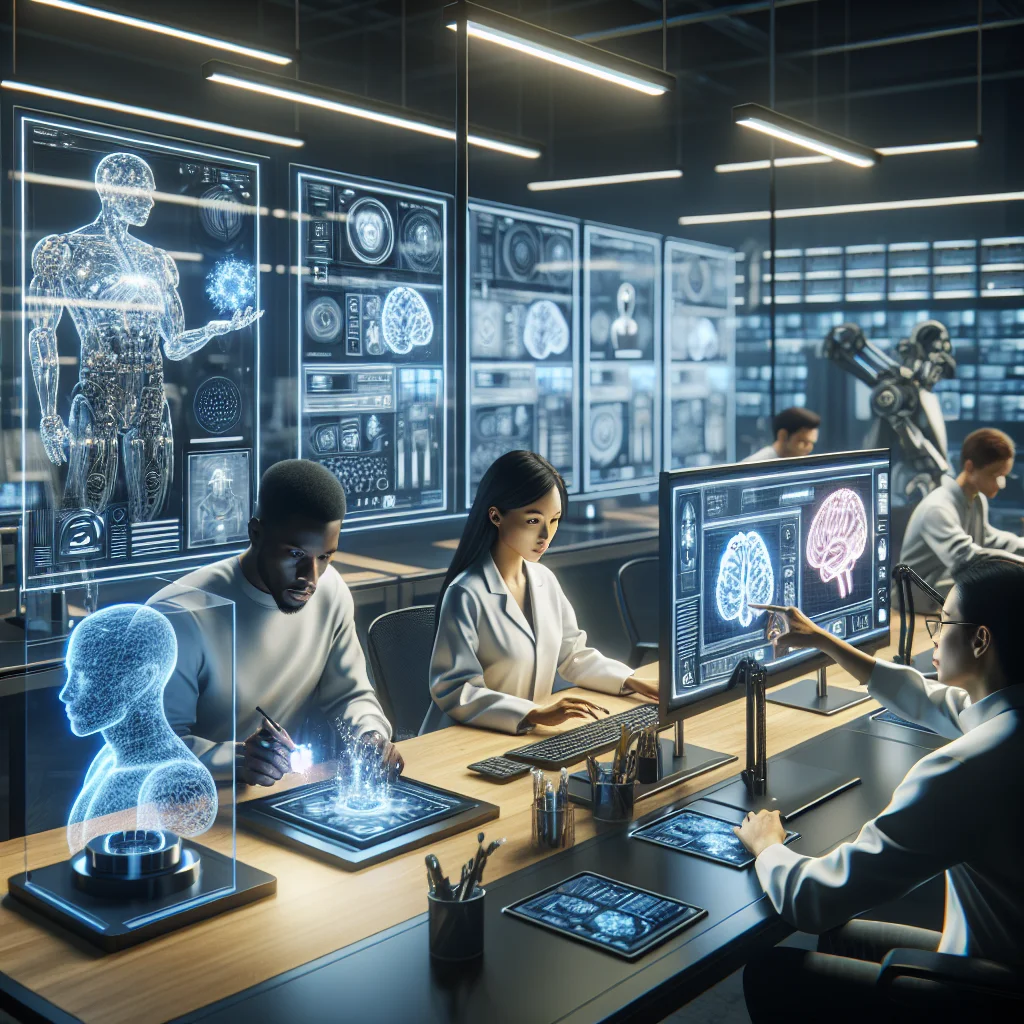Exploring the Latest Trends in AI Technology for 2025
April 08, 2025

Artificial Intelligence (AI) has become a cornerstone of innovation in various sectors, fundamentally transforming how we interact with technology. As we progress into 2025, understanding the latest AI trends is crucial for tech enthusiasts and professionals alike. This article delves into the newest developments in AI, examines practical applications across industries, and includes insights from leading experts in the field.
What are the Latest Trends in AI Today?
The landscape of AI is rapidly evolving, with several trends shaping its future. One prominent trend is the rise of generative AI, which can create text, images, and even music based on user prompts. Applications like ChatGPT and DALL-E have demonstrated the incredible potential of generative AI in creative and practical tasks. Additionally, the integration of AI with the Internet of Things (IoT) has paved the way for smarter devices that communicate and learn from data in real-time, enhancing efficiency in homes and industries alike.
Another significant trend is the emphasis on ethical AI. As AI technologies advance, discussions surrounding privacy, bias, and transparency have intensified. Companies are investing in frameworks to ensure their AI systems are used responsibly and to build public trust. This movement toward ethical AI is driven by both regulatory pressures and a growing awareness of the societal impact of these technologies.
Practical Applications of AI Across Industries
AI technology applications span a multitude of industries, revolutionizing operations and enhancing productivity. In healthcare, AI is being used for predictive analytics, helping professionals diagnose diseases more accurately by analyzing patient data and medical histories. Furthermore, AI-powered tools are assisting in drug discovery by simulating how different compounds interact with the human body, significantly speeding up the research process.
The finance sector also benefits from AI, particularly through algorithmic trading and fraud detection. By analyzing large datasets at unprecedented speeds, AI can identify patterns that humans may overlook, enabling timely decisions that can lead to increased revenue and reduced risks. Banks and financial institutions are increasingly employing AI-driven chatbots to improve customer service, providing instant support and information to clients.
Expert Insights on the State of AI
To gain a deeper understanding of AI's trends, we consulted leading experts in the field. Dr. Mia Chen, a prominent AI researcher, emphasized the need for continuous learning within AI systems. “As we adapt machine learning models to gather more data, we must also develop methodologies that ensure these systems learn in an ethical manner,” she noted. Her insights highlight that while AI can optimize processes, human oversight remains vital in guiding its development responsibly.
Additionally, industry leader James O'Malley explained, “The adaptability of AI technologies means that businesses must embrace change and be willing to innovate. Companies that hesitate to adopt AI may fall behind their competitors.” His comments reflect the urgent necessity for both established businesses and startups to integrate AI into their strategic planning.
The Consumer Perspective on AI Innovations
As AI continues to permeate everyday life, consumer awareness and preferences play a crucial role in shaping its future. Users are becoming increasingly savvy about the technology and expect personalized experiences. This means companies are turning to AI solutions that leverage user data to enhance engagement and satisfaction. From tailored recommendations on streaming platforms to intelligent virtual assistants, consumers now anticipate a level of service that only AI can deliver.
Nevertheless, understanding consumer concerns around privacy and data usage is equally important. As businesses advance their AI capabilities, they must balance personalization with ethical considerations, fostering a relationship of trust with their customers. This approach not only enhances user experience but also builds brand loyalty.
Fascinating Insights on AI Adoption
Globally, the adoption of AI varies significantly across different regions and industries. For example, according to recent studies, the Asia-Pacific region is leading in AI integration, driven by substantial investments in technology and innovation ecosystems. In contrast, certain regions in Europe are more cautious, focusing on the regulatory implications of AI deployment.
Moreover, small and medium enterprises (SMEs) are beginning to leverage AI solutions catering to their specific needs, showing that the technology is not just for large corporations. With the advent of affordable AI tools and platforms, even smaller businesses can harness the power of AI to enhance their competitiveness.
Conclusion
In summary, the world of AI in 2025 is characterized by rapid advancements, ethical considerations, and diverse applications across various sectors. From generative AI reshaping creative industries to machine learning driving healthcare innovations, AI remains a pivotal force in technological evolution. As we look ahead, embracing these trends while committing to ethical practices will be essential for unlocking the full potential of artificial intelligence.
Back